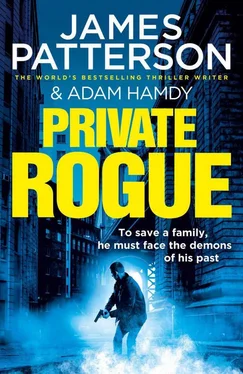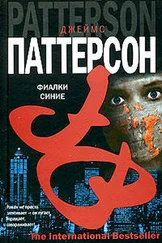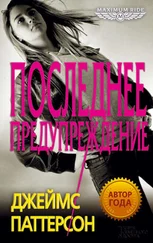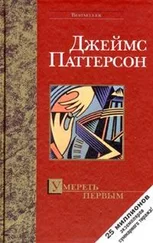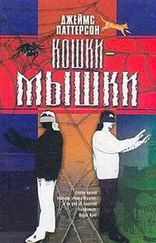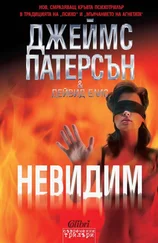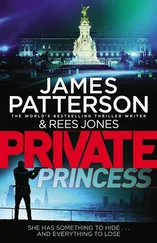“Look,” Floyd said, pointing through the trees.
I saw a light and we both picked up pace. My legs had been pummeled by the ascent but the descent had been worse, fighting gravity with every step, resisting the pull of the ground with muscles that had very little left to give.
I don’t know whether it was my bleary eyes, general exhaustion or fogged mind, but I didn’t realize our mistake until it was too late.
The light we’d assumed was the border post was in fact a landing light fixed to the undercarriage of a Hind helicopter, which stood in a clearing not fifty paces from us.
I motioned to Floyd to stop, and we both dropped into a crouch.
My senses were suddenly alert. I heard everything: the creaking of branches moving in the wind, the distant hoot of an owl, the brush of pine needles against each other, and the low chatter of men talking in Russian. I saw a unit of twenty in snow camouflage standing around the helicopter. This was the group that had been hunting Floyd, I was sure of it. There was only one chopper. Perhaps the other had left already. None of the men appeared to be injured, so I guessed the first had been used to transport the wounded who would have undoubtedly been caught in the rocket blast. The men were just standing around, smoking and talking. Then the reason for their presence here became clear. A pilot in conventional green fatigues emerged from beneath the aircraft clutching a wrench and spoke to a tall man in snow camouflage. He had the bearing of a commander. They must have been forced to land here and make repairs.
I signaled to Floyd to go back the way we’d come. The chopper stood between us and the border post. We’d have to give it a wide berth if we were going to avoid being spotted. We moved back slowly and silently, but we’d only gone a few yards when I saw something that stopped me in my tracks: the green glow of infra-red goggles pointed directly toward us.
The Russian brought the goggles down from his eyes and ran over to his commander. They exchanged some words and the commander took the IR goggles, pointing them in our direction.
“Don’t move,” I whispered.
I saw the commander looking directly at us. My heart sank when he lowered the goggles. His eyes shone with the hunger of a predator, and there was a faint smile of satisfaction on his face.
“Run!” I yelled, and we turned and sprinted east.
At the same moment, the commander barked at his men, who instantly went from casual soldiers to disciplined hunters. The forest filled with shouts and the crashing of boots, and then came the gunfire. I stayed as close as I could to Floyd because I knew they wouldn’t risk killing him. The gunfire was intended to confuse and intimidate, so I tuned out the fear and harnessed the adrenaline.
Floyd and I were making good progress. The dangerous part would be when we turned south for the border post. I could see men in camouflage gear tracking us, running through the trees, trying to cut us off to the south. They moved like shadows whipping through the forest. We had to outrun them. The border post was about two hundred yards beyond the chopper. Guards had come out of the building to look in the direction of the gunfire.
“Come on,” I said to Floyd, and we pivoted south, sprinting through the trees.
I lifted my legs high to avoid fallen branches and roots, but still I stumbled. Floyd did too, but neither of us fell. Flames burst around us, spitting from muzzles, and bullets shredded the forest, but we pressed through the storm of gunfire, driven by thoughts of the people we loved.
A man stepped out from behind a tree and swung the butt of his machine gun at Floyd’s face, but I bundled him to the ground and we tumbled at the man’s feet. I jumped up as he swung again, blocked the blow with my left forearm, and drove the palm of my right hand into his chin. His head snapped back and he let out a pained groan. I seized the opportunity to punch his exposed throat. He instinctively raised his hands to the injury and I hit him in the solar plexus, before grabbing his gun and wrestling it off him. I saw two other men coming through the trees, quickly turned the machine gun on them and fired. They went down and Floyd ran over to them. I drove the machine gun’s butt into the face of the man clutching his neck, knocking him out cold. I heard shouts behind me and turned and opened fire.
I saw shadows scatter as I ran to join Floyd. More gunfire and shouts followed, but Floyd and I weren’t listening. We were running. We broke the treeline at a sprint, racing toward the border post and a group of jittery guards. They raised their rifles and barked commands, but there was no way we were stopping.
I looked back at the trees and saw the Russian commander run to the edge of the forest. I couldn’t make out his face in the shadows, but I suspected he wasn’t smiling anymore.
The Pakistani border guards were shouting furiously.
“Don’t shoot!” I yelled in reply. “We’re Americans. We pose no threat. We need your help.”
The border patrol officers who staffed the station had taken our weapons. Their commanding officer, a Major Azar Khan, spoke excellent English and told us we were to be held until he had contacted his superiors. Floyd and I were taken to a holding room in the largest of the three buildings at the post. There was one structure on the Afghan side, but it was unmanned and looked abandoned.
The building we were in was constructed from whitewashed cinder blocks and contained six rooms: an office, a staff room, a bunk room, kitchen, toilet, and a holding room. Located at the back of the building, it wasn’t a cell, but it wasn’t far off. A trio of double bunks lined the windowless interior walls and a small electric heater struggled against the cold.
Floyd and I sat on bunks near the heater, trying to absorb as much of its pathetic warmth as possible. We’d attempted to persuade Major Khan to give us access to a phone, but the Pakistani commander refused. He was very aware of how easily two American strays hunted by Russian paramilitaries could quickly escalate into a huge diplomatic incident if everything wasn’t done by the book.
“How long do you think we’ll be stuck here?” Floyd asked.
I shrugged. I knew how slowly the wheels of bureaucracy could move. I was desperate to get to a phone so I could let Justine know I was still alive, and I had no doubt Floyd was itching to talk to Beth.
I heard raised voices beyond the locked door, and then footsteps. A key went into the lock and the door opened to reveal Major Khan. His gray-flecked moustache drooped with disappointment. There was an overwhelming air of apology about him.
“Are we done?” I asked.
“I’m sorry,” he said. “There was—”
He was pushed aside by the familiar figure of the Russian commander. He had a blond crew cut and stood about six-three, looming over the Pakistani officer, who shrank against the wall of the holding room.
“My name is Nikita Kolokov,” the Russian said. “You are now my prisoners. You will come with us.”
Two of his subordinates moved into the corridor behind him and he barked a command at them in Russian. I didn’t need to speak the language to understand the order: I was to be killed.
“I am very sorry,” Major Khan offered. “There are too many of them for us.”
“And we pay well,” Kolokov added.
Major Khan flushed with shame and cast his eyes to the floor. I didn’t care about the motives for his betrayal of us. My only concern was getting out of there alive.
“Come,” Kolokov instructed, gesturing at Floyd. “Our chopper is ready to take you for processing.”
Читать дальше
